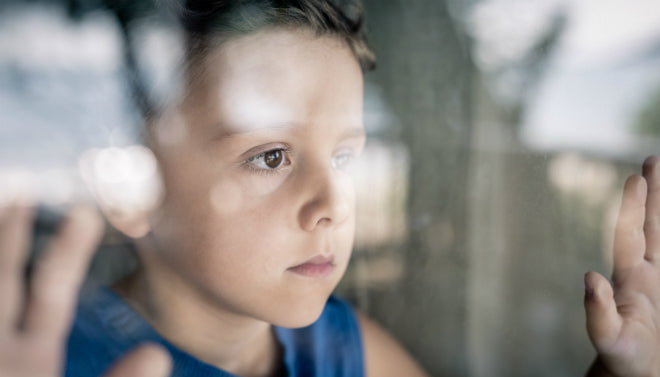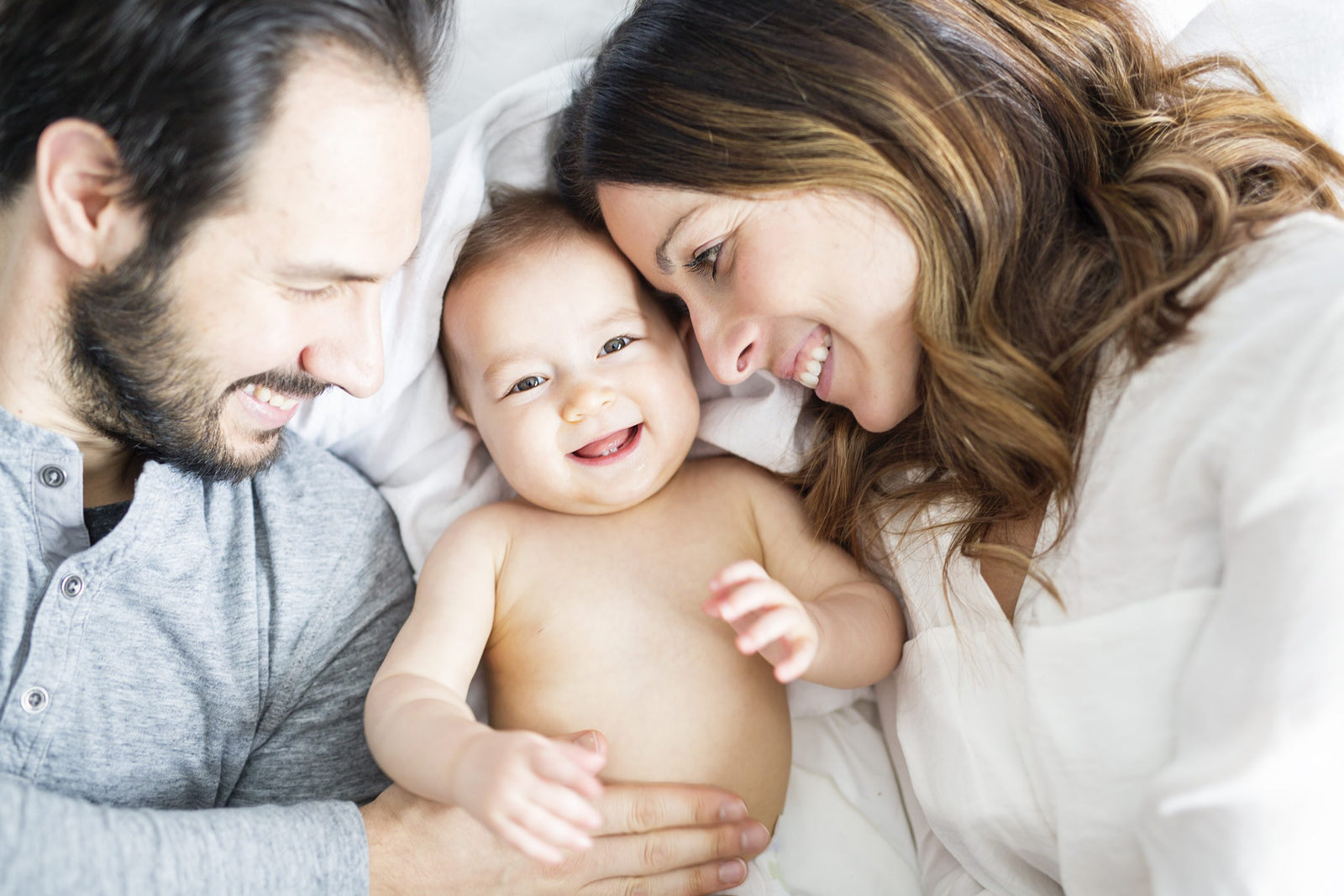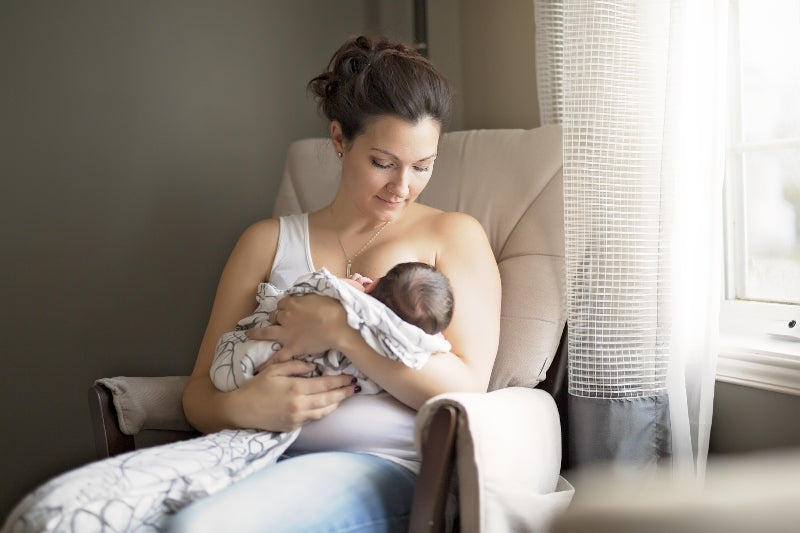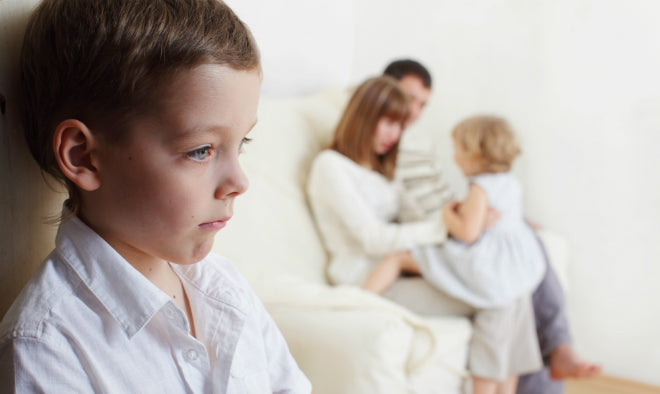Although everyone knows that death is part of life, it still takes most people by surprise. When a family member or a good friend dies, grief is inevitable. Adults usually have an idea of how to cope with grief. But how do children deal with grief? Find out here which stages of grief children go through, how you can comfort them and what joint grief work looks like.
When children grieve...
It is very important to know that coping with grief takes different forms for children than for adults. Depending on age, the idea of death alone is very individual. Until the age of four, there is usually no concept of the end of life. Only in the course of pre-school age do comparisons with "going away" and "being in heaven" become established. It takes until around the age of ten to actually grasp the finality of dying. In line with their concept of death, children's grief is therefore quite specific.

Grief in children can also manifest itself in aggression
The stages of grief in children are different from those in adults. They tend to have wave-like episodes in which they can be very desperate, sad or even aggressive. The next moment, everything is fine again and they continue to play. This can seem strange to parents. Outsiders may think that the little one is not grieving at all and that comforting is unnecessary. However, these episodic phases of grief protect against overload. The child is not yet able to grieve intensively and without interruption. It needs "normal" life in order to recharge its batteries to deal with the death.
When children grieve, a temporary regression in their development is also possible.
Due to the particularly stressful situation, they suddenly wet the bed again or suck their thumb. This is normal and will pass. It only becomes worrying when the little ones withdraw, no longer want to play at all and no longer meet friends. If this condition persists over a longer period of time, help from a specialist is advisable.
Talk about the death
A death can occur suddenly in any family. It is very helpful for the grieving process if the topic of death has been discussed beforehand. Children often come up with questions on their own. Perhaps they talk about it in kindergarten or a pet dies. Then it is your job as parents to get involved in the conversation.

Communicate with your child about death
It is important not to use euphemisms to explain death. Statements such as "The rabbit is now fast asleep" raise false hope and, on the other hand, make people afraid of sleeping. The finality of dying is frightening. Nevertheless, it must be clear that the deceased will not return. Only then is appropriate mourning possible. When giving explanations, go into the physical processes, for example:
"He is no longer breathing. The heart is no longer beating."
If you have a religious or personal belief about what happens after death, you should also explain this. It can help children if they believe, for example, that the soul of the deceased is in heaven. This opens up opportunities for grieving and can provide comfort, as the deceased is still somewhere. You can speak to them.

Comfort your child
Dealing with grief in children
If someone has actually died, honesty and openness are paramount. Even if the mourning phase for children can be stressful for adults, a death must not be concealed. If it becomes too much for you, try to find a less affected caregiver who can talk to your child and comfort them. Keep reminding yourself: How do children deal with grief? It is normal for crying fits to occur between phases of happy play or for direct questions about the deceased to arise.
Under no circumstances should you hide your own sadness. Your child will learn from you that sadness is okay. Allow yourself space and opportunities to withdraw, but remain authentic in your grief. It can be a good feeling for your child to comfort you a little for a change. This takes away the feeling of helplessness.


Otherwise, fixed rituals are very helpful as part of the grieving process. They reassure and provide security. Going to bed in particular should follow a set pattern to ensure a deep and restful sleep. Use sleep aids and read a nice story. If the darkness is too frightening, a small night light can help.
When children are grieving, they need all the more activity. Exercise can help them relieve the stress that has built up as a result of grieving. If there is a favorite sport, it should be made possible on a regular basis.
Provide comfort
The sports club or playground are important retreats for children during the grieving process. The "normal" places away from the grieving home are comforting anchor points. Inform teachers, educators and the parents of friends about the bereavement. This will help them understand what is going on and help them to cope with the grief. On the one hand, talking to an outsider is sometimes much more comforting when grieving than talking to other people affected. On the other hand, children need a lot of encouragement in emotionally stressful times. Increased praise and recognition therefore help them to cope.

Be there for your child - even if you are suffering from grief yourself
Children's grief quickly affects their self-confidence. At primary school age, it can even happen that children believe they are to blame for the death. Perhaps they said something bad to the deceased or thought badly of them. Here it is important to argue against this magical thinking and eliminate possible feelings of guilt. Explain in child-friendly terms what the actual cause of death was.

Comforting works well through physical closeness. Cuddling should be offered frequently. A cuddly toy can also provide a feeling of security. Joint activities to process the event provide additional comfort.
For example, make a memory box with photos and typical objects of the deceased. It also often helps to write a farewell letter or paint pictures together for the deceased.
Going to the funeral?
At the end of our comments on "How do children deal with grief?" we discuss a frequently asked question: Should the child go to the funeral or not? In principle, there is nothing to stop children from the age of four. It also helps children to cope with grief if they can say goodbye. This can be as part of the official funeral ceremony or on a smaller scale beforehand.

Saying goodbye is important for coping with grief
Discuss in advance how the funeral will take place. Who will do what, when and why? If there is an opportunity, the child can help shape the process themselves. For example, they could place a farewell gift in the coffin or grave. During the ceremony, it is important that the child is allowed to leave at any time. Ideally, there should be a caregiver who can do something else with them if they are overwhelmed by the situation. As with the entire grieving process, a mixture of freedom and support should give children the necessary security during the funeral.










